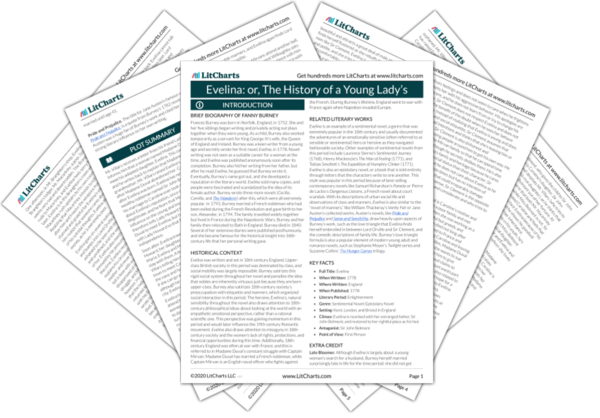Captain Mirvan demonstrates no sensibility, an 18th-century term which suggested emotional sensitivity and strong reactions to suffering or to offensive things. Mrs. Mirvan, on the other hand, is sensitive to the play’s bawdy material because she is sensible—whereas Captain Mirvan thinks it is funny. Captain Mirvan points out Mr. Lovel’s vanity and pretentiousness, as Mr. Lovel only cares about his reputation and does not have any naturally sensible response to the plays he goes to see. He just wants to maintain the
appearance of sensibility and appreciation of the arts because it is fashionable, an attitude which Burney implies was common among 18th-century Londoners.
